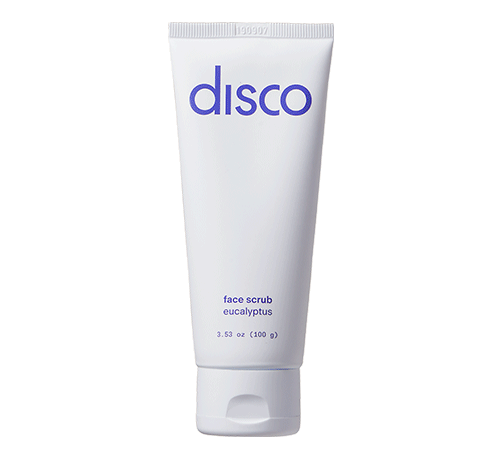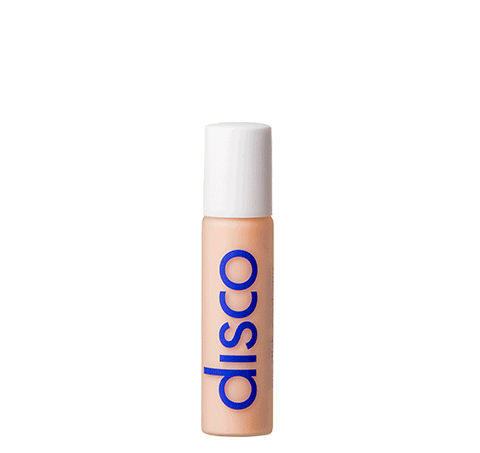Dr. Eva Simmons-O’Brien, Disco’s medical advisor, is an Ivy-Leage dermatologist who knew that a men’s skincare line was absolutely needed.
In Part 1, we discussed how Ben laid the foundation for Disco as both a brand that can approach a historically female-saturated market, and a science-backed skincare brand that offered a real value when it came to premium skincare. We’re back with Part 2 of the Founder Series, where we sit down with Dr. Eva to discuss the science behind the skincare.
Q: What made you drawn to work with Ben as Disco’s Medical Advisor?
I have known Ben for a long time, and he has always been interested in skin health. Ben reached out to me in the early stages of Disco’s development to see if there was a place for his products in the cosmeceutical marketplace. I told him that a men’s skincare line was absolutely needed and that I’d be happy to advise him on products and formulas.
Q: Do you think everyone should adopt a skincare regimen?
Yes! Everyone has skin, and everyone should take care of it. Skincare is part of overall health and wellness. Your regimen should not only include quality topical products, but also proper nutrition and hydration, restful sleep, and stress management. All of these things affect the quality of your skin.
Q: What biological or environmental characteristics do you believe differentiate men’s skin from women’s skin? Why are men’s skin needs different than women’s?
Men and women have some differences when it comes to their skin. Men tend to have thicker skin on average that gets oilier with age. However, men’s skin can experience slower aging due to collagen thickness, arrector pili muscles, and bone mass. In addition, a majority of men shave on a regular basis, and that chronic exfoliation helps to keep their lower facial skin in a collagen producing mode.
Men’s skincare needs differ from women’s because the upper portion of their face, including the scalp and ears, takes the brunt of the UV damage. Men’s facial hair can give them some innate protection from both UV and non-UV irradiation. However, I do notice that my female patients are much more consistent about wearing sunscreen and applying moisturizing products to their face and body. I think that’s because women have been conditioned to care for their skin from an early age, whereas men seem to pick up that habit later in adulthood.

Q: What can contribute to premature aging skin, and what precautions do you recommend?
The greatest contribution to premature aging skin is chronic exposure to UV irradiation without topical sun protection or protective clothing. Changing environmental conditions also impact aging; more UV-C is penetrating the earth because climate change is shrinking the ozone layer. People who work jobs outdoors often experience more intense UV exposure.
I can recommend several precautions. First, protect yourself against UV and non-UV irradiation by taking proper care of your skin through cleansing and moisturizing, as well as using sun block. If you work or spend a lot of time outdoors, remember to wear sun protective clothing in addition to using sun block. You might also consider taking a protective oral supplement like Heliocare which can provide broad spectrum UVA/UVB protection through the Polypodium leucotomos extract. Also, be aware of prescribed medications and foods that may increase your risk for sun sensitivity.

Q: Why are some men more prone to acne than others?
Great question! Genetics can play a role in how the skin reacts to the influence of testosterone. Maintaining good hygiene and grooming habits are also important. Keeping your hands off of your face and replacing shaving tools regularly is key. Changing linens like pillowcases, towels, and bedsheets on a weekly basis can also help. I have seen diet play a role in men’s acne, too – especially when they over-consume milk protein.
Q: What ingredients do you believe to be safest for sensitive skin and all skin types for treating men’s skin?
Ingredients that are safe for sensitive skin include sun protection products that contain micronized zinc oxide rather than chemical sunscreen agents. People with sensitive skin should also look for products that don’t use added fragrance, nickel, parabens, or sulfates.
Q: What are some ingredients that everyone should be using?
Everyone should be using micronized zinc oxide, a broad-spectrum UV protectant. People should also consider introducing Niacinamide to their routine. It’s a form of Vitamin B3 that offers benefits to aging and blemish-prone skin. It’s an anti-inflammatory agent and also has a skin-brightening effect.
Q: From your knowledge and expertise, what do you believe is the biggest hoax in the skincare industry?
The biggest hoax is that a single product can, in short, change the entire complexion and texture of your skin. It doesn’t take just one product to make a change; it takes a village!

Q: What are the risks from not using sun protection?
There are several risks to not using sun protection. They include skin cancer, skin that is predisposed to skin cancer, skin laxity, skin atrophy or thinning, elastic tissue fiber reduction, irregular pigment, darkening, and uneven complexion. Not wearing sun protection can also increase the appearance of blood vessels on the face and enlarge pores due to collagen depletion.
Q: Favorite Disco product?
I love every product, but my favorite is definitely Disco’s Moisturizing Mineral Sun Block. I’ve gone through a lot of sun blocks in my years of practice, and this formula stands out from the rest. The sunscreen is a physical block that uses micronized zinc oxide, which means it’s perfect for individuals with sensitive or acne prone skin – it won’t clog your pores. The formula is lightweight and can be easily blended into the skin. It works on all skin types and has the 2 for 1 benefit of UV protection and anti-aging! It contains antioxidants and natural skin brighteners like wakame extract and niacinamide which help slow down melanin production as well as a tripeptide to rebuild the skin dermis and help erase fine-lines and wrinkles.







